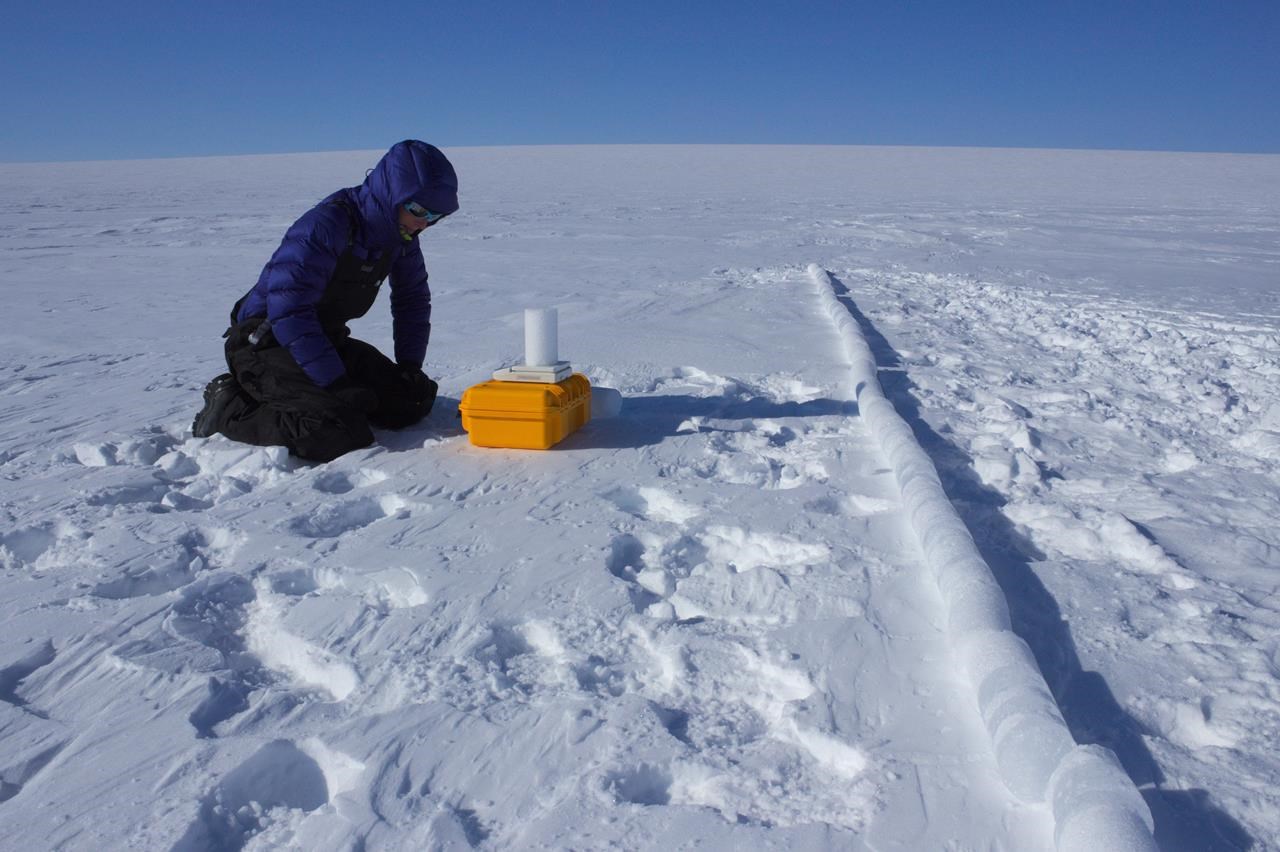Ancient Arctic Ice Cores Damaged in University's Freezer Meltdown

Climate researchers just lost part of an important collection of ancient Arctic ice cores, after a freezer malfunction sent heat, instead of cold, circulating around the samples.
The University of Alberta in Edmonton confirmed last week that the freezer failure resulted in a partial melting of ice core samples from the Canadian Ice Core Archive (CICA), affecting 12.8 percent of the collection. The CICA is the world's largest collection of Canadian Arctic ice core samples, with more than 80,000 years of climate data in what amounts to 0.87 miles (1.4 kilometers) of ice.
Ice core samples can act as time machines because the samples contain such things as air bubbles, dust grains and pollen, offering scientists important information about Earth's past climates, including clues about temperature and the composition of the planet's atmosphere. [Image Album: Inside the Ice Core Laboratory]
"When you lose part of an ice core, you lose part of the record of past climates, past environments — an archive of the history of our atmosphere," glaciologist Martin Sharp, lead researcher for CICA, said in a statement. "You just don’t have easy access to information about those past time periods."
The loss of the melted core data is not the only impact on future research, according to Sharp. Melted water from one core segment can "contaminate" other segments, which, Sharp said, makes it difficult to analyze contaminated segments. New technologies, such as cryogenic lasers, may be used to explore whether information can be salvaged from the partially melted samples, he added.
Though the cores are stored in 3.28-foot (1 meter) segments, and no core was completely lost in the freezer meltdown, the loss will still affect scientists' study of the archive.
"This incident will affect research, no question. It rules out certain studies that we might have wanted to conduct on the cores, such as reconstructing continuous long-term histories where parts of the cores have been lost or contaminated," Sharp said. "We may have to reconsider some of the work we planned to do, but the work can and will continue — and nearly 90 percent of the archive is still intact."
Sign up for the Live Science daily newsletter now
Get the world’s most fascinating discoveries delivered straight to your inbox.
According to the university, the entire CICA collection (including the damaged samples) has been moved to a different freezer and additional safeguards have been put in place.
Original article on Live Science.










